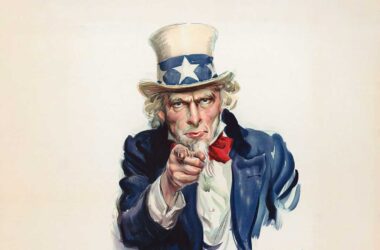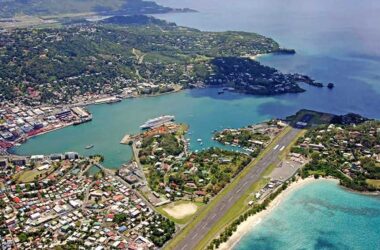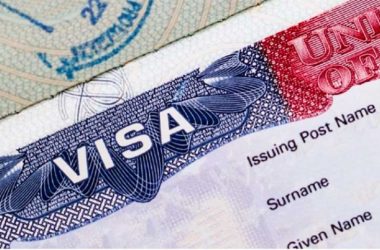“Both China and Taiwan have been good to different CARICOM countries and the Caribbean has absolutely no stake in helping drive the world towards a military confrontation that the region will not escape in this new era of smart and stealthy global weapons of mass destruction.”

With elections in Taiwan four months away, President Tsai Ing-wen has clearly decided to stake a great part of her re-election claim on appearing as the only candidate willing and able to sufficiently arm Taiwan for any eventual military engagement with China.
China, on the other hand, has always insisted it will never sit back and watch Taiwan turned into a serious military threat by Washington in its ultimate plan to increase US military presence in Taiwan and then quickly expand overall US military presence in the region in the name of ‘protecting Taiwan’.
Between 2008 and 2016, Beijing and Taiwan found ways to lessen the tensions and increase cooperation, each side agreeing to disagree on the basis of mutual understanding of their various misunderstandings — and each respecting the other’s ‘Red Lines’ in the process.
Since then, though, Cross-Strait ties have again been put in the deep freeze, with a commensurate heating-up of ties between Taipei and Washington, alongside a sizeable reduction in Taiwan’s international support, losing five allies in less than three years under Madam Tsai — and blaming Beijing for only 16 out of 193 United Nations (UN) member-states having ties with Taipei.
Interestingly, short of closely following the news, one will never realize any hostilities existing between the peoples of China and Taiwan, as their respective citizens don’t care less, unless asked, about the rising and lowering of Cross Strait tensions (I’ve visited Taiwan under both Ma and Tsai administrations and in neither case did any Taiwanese tell me anything negative about Chinese.)
I covered the 2016 elections in Taiwan at the invitation of the Taiwan Foundation for Democracy, during which I joined scores of other journalists travelling all over the island, following the parties and the major campaign issues and observing how the DPP eventually won.
Most of us – all from countries with governments supporting Taipei — concluded that the DPP didn’t win on an overall pro-Independence or anti-China ticket, but more on the basis of domestic issues.
The polls had also shown that anti-China sentiments were lower than being portrayed by those in the DPP who advocated independence and reduction or removal of all major inherited ties with mainland China.
I attended the first press conference called by the DPP’s leadership after its 2016 victory, where now Foreign Minister Joseph Wu explained aspects of foreign policy the new administration would take under President Tsai.
Things have not exactly turned out as expected by the then glorious electoral victors, but there’s been a greater escalation of tensions with Beijing and an acute intensification of ties with the US along lines that would naturally infuriate China.
As things stand now, it is quite likely that in the lead-up to the next Taiwan presidential poll, Madam Tsai will feel encouraged to flex her muscles even more by doing and saying more of those things that will definitely anger Beijing — to which China can be expected to respond in a commensurate manner, with all the likely consequences of mutual escalation of uncomfortable exchanges that can evolve into the type of confrontation that the rest of the world will not benefit from.
The next four months will see a definite intensification of efforts by Taiwan to keep all five of its remaining Caribbean allies (Belize, Haiti, St Christopher (St Kitts) and Nevis, Saint Lucia and St Vincent and the Grenadines on board, notwithstanding Taipei’s never-ending nervousness from uncertainty over whether and when any might decide to engage or re-engage with Beijing.
Taipei will also expect each to support it during that period in any and all of its upcoming brushes with China over its accelerated military and political engagements with the US.
Likewise, Britain and the US will also (most likely) encourage CARICOM nations in the weeks and months ahead to take positions against China on the Hong Kong issue.
But here again, it remains necessary for all CARICOM member-states to stay out of the Chinese People’s internal affairs as they relate to Taiwan and Hong Kong, as the quarrel is mainly over their different interpretations of ‘One China’ and ‘One Country, Two Systems’ – and it’s simply none of our business.
All efforts to internationalize the Hong Kong and Taiwan issues today must be seen within the context of the ultimate political objectives of those fanning the flames on both sides from outside and the likely consequences for international peace that would result from any confrontation between China and the USA (and/or the UK), over Taiwan and Hong Kong.
Both China and Taiwan have been good to different CARICOM countries and the Caribbean has absolutely no stake in helping drive the world towards a military confrontation that the region will not escape in this new era of smart and stealthy global weapons of mass destruction, with nuclear treaties being abandoned, some nuclear powers loosely threatening to be the first to ‘press the button’ and the world already into a new arms race between its two major nuclear powers.
CARICOM countries must do all they can, between elections in all cases, to prove wrong those who continue to profess that among Taiwan’s remaining allies, the Caribbean leaders will be first to play the ‘ping-pong’ version of Asian dollar diplomacy, taking advantage of the widening Cross Strait gap to extract the most lucrative deals from either side, in the name of pursuing vital national interests.













